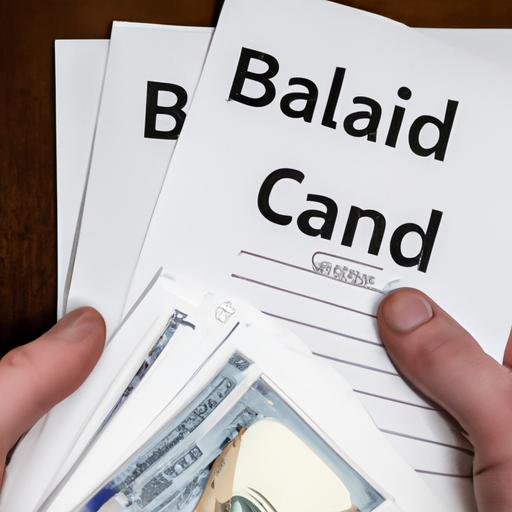Introduction
Are you struggling with mounting debt and considering options like Freedom Debt Relief? It’s natural to wonder about the potential impact on your credit. In this article, we’ll explore the effects of Freedom Debt Relief on your credit score and shed light on whether it can truly ruin your credit. But first, let’s understand what Freedom Debt Relief is all about.
Freedom Debt Relief is a renowned debt settlement company that aims to help individuals find financial freedom. They negotiate with your creditors on your behalf to reduce the amount of debt you owe. While this can be a lifeline for those grappling with overwhelming debt, it’s crucial to consider the consequences on your credit score.
Now, why is your credit score so important? Well, think of it as your financial report card. Your credit score is a numerical representation of your creditworthiness, influencing your ability to secure loans, obtain favorable interest rates, and even qualify for rental agreements or job opportunities. In short, it has a profound impact on your overall financial health.
Now that we understand the significance of credit scores, let’s delve into the effects of Freedom Debt Relief on your credit. Stay tuned to learn more about the impact and what you can expect when you enroll in their program.
Understanding Freedom Debt Relief
When considering Freedom Debt Relief, it’s essential to have a clear understanding of the services they offer and their purpose. Let’s take a closer look.
Overview of Freedom Debt Relief Services
Freedom Debt Relief specializes in debt settlement, aiming to provide individuals with a pathway to financial freedom. Their experienced negotiators work on your behalf, reaching out to creditors to negotiate lower settlement amounts. The goal is to help you pay off your debt faster and at a reduced cost.
The Debt Settlement Process and Credit Effects
Now, let’s explore how the debt settlement process employed by Freedom Debt Relief can impact your credit. Debt settlement involves negotiating with your creditors to agree on a reduced payment amount, often resulting in a partial forgiveness of the total debt owed.
While debt settlement can provide much-needed relief from overwhelming debt, it does come with certain repercussions for your credit score. During the debt settlement process, it’s common for individuals to stop making payments to their creditors temporarily. This is done to accumulate funds for settlements negotiated by Freedom Debt Relief.
As a result, missed payments and a high debt-to-income ratio can negatively affect your credit score. It’s important to note that these temporary setbacks are not caused directly by Freedom Debt Relief but rather by the nature of the debt settlement process itself.
In the next section, we’ll delve deeper into the specific factors that can influence your credit score during the debt settlement period. Understanding these factors will help you navigate the process more effectively and make informed decisions about your financial future.
Does Freedom Debt Relief Impact Your Credit?
How Freedom Debt Relief Affects Credit Score
When considering debt relief options, it’s crucial to understand how they can impact your credit score. Freedom Debt Relief operates by negotiating with your creditors to lower the amount you owe. While this can provide much-needed relief from your debt burden, it’s important to note that it can also have repercussions on your credit.
During the debt settlement program, you may experience a temporary dip in your credit score. This occurs because, in order to negotiate with creditors, Freedom Debt Relief typically advises clients to stop making payments to their creditors. As a result, late payments and missed payments may be recorded on your credit report, negatively affecting your score.
Potential Negative Impacts on Credit During the Program
It’s essential to be aware of the potential negative impacts on your credit while enrolled in the Freedom Debt Relief program. As mentioned earlier, missed payments can be reported to credit bureaus, leading to a decline in your credit score. This can make it more challenging to obtain credit or secure favorable loan terms during the program.
Additionally, creditors may continue their collection efforts, which can include phone calls and letters, during the negotiation process. While Freedom Debt Relief works to mitigate these interactions, it’s important to understand that they can still occur, potentially causing stress and anxiety.
However, it’s important to keep in mind that the impact on your credit is not permanent. As you progress through the program and settlements are reached with your creditors, your credit score can gradually improve. It’s crucial to maintain patience and focus on the long-term benefits of debt relief rather than solely on temporary credit score fluctuations.
In the next section, we’ll explore the factors that influence your credit score during the debt settlement process and discuss the importance of making timely payments. Stay tuned to discover how to navigate the potential impacts and rebuild your credit after completing the Freedom Debt Relief program.
Factors Influencing Credit Score During Debt Settlement
When you’re enrolled in a debt settlement program like Freedom Debt Relief, it’s important to understand the factors that can influence your credit score. While debt settlement itself may have some negative impact on your credit, certain factors can mitigate the damage and help you maintain a healthy credit profile. Let’s explore these factors in more detail.
1. Payment History
One of the key factors that influence your credit score during debt settlement is your payment history. Making timely monthly payments towards your settled debts is crucial. By consistently paying your agreed-upon amounts, you demonstrate financial responsibility and reliability to creditors and credit bureaus. This can help mitigate the negative impact of debt settlement on your credit score.
2. Debt-to-Income Ratio
Another important factor to consider is your debt-to-income ratio. This ratio compares the amount of debt you have to your income. While enrolled in a debt settlement program, you’ll likely be making monthly payments towards a settlement fund. As you steadily reduce your debt through settlements, your debt-to-income ratio improves. This can positively impact your credit score over time.
3. Length of Credit History
Your credit history’s length plays a role in determining your creditworthiness. Debt settlement may result in the closure of some accounts, which can shorten the average age of your credit history. However, it’s important to note that closed accounts with a positive payment history will still be listed on your credit report for several years. Keeping older accounts open and in good standing can help maintain a positive credit history.
4. Credit Utilization
Credit utilization refers to the percentage of your available credit that you’re using. Debt settlement can reduce your overall debt, which in turn lowers your credit utilization ratio. A lower credit utilization ratio is typically viewed positively by credit bureaus, as it indicates responsible credit management. This can help offset the negative impact of debt settlement on your credit score.
By understanding these influential factors and making timely monthly payments towards your settlements, you can help mitigate the potential negative impact of debt settlement on your credit score. It’s important to stay committed to your repayment plan and develop positive financial habits to rebuild your credit over time. Remember, a strong credit score opens doors to better financial opportunities in the future.
Rebuilding Credit After Freedom Debt Relief
Strategies for Rebuilding Credit
After completing the Freedom Debt Relief program, you may be wondering how to rebuild your credit. While the program may have had some impact on your credit score, it’s important to remember that it’s not the end of the road. Here are some effective strategies to help you bounce back:
-
Monitor Your Credit Report: Start by obtaining a copy of your credit report from major credit bureaus like Experian, Equifax, and TransUnion. Review it carefully to ensure all information is accurate and up to date. Dispute any errors or discrepancies that may be negatively affecting your credit score.
-
Pay Bills on Time: Consistently paying your bills on time is one of the most crucial factors in rebuilding your credit. Set up automatic payments or reminders to avoid missing any due dates. Timely payments demonstrate your reliability to potential lenders and gradually improve your creditworthiness.
-
Manage Your Debt Responsibly: While it may be tempting to avoid debt altogether, responsible debt management is essential for rebuilding credit. Consider obtaining a secured credit card or a small personal loan to establish a positive payment history. Aim to keep your credit utilization ratio low and make regular, on-time payments.
Importance of Developing Positive Financial Habits
Rebuilding credit goes beyond just the numbers. It involves adopting healthy financial habits that contribute to long-term financial stability. Here are some habits to cultivate:
-
Budgeting: Creating a realistic budget allows you to track your expenses, prioritize debt payments, and save for future goals. By effectively managing your finances, you can avoid falling into debt again and maintain a positive credit trajectory.
-
Building an Emergency Fund: Unexpected expenses can derail your financial progress. Establishing an emergency fund can provide a safety net during challenging times, reducing the likelihood of resorting to credit cards or loans to cover unexpected costs.
-
Seeking Professional Guidance: Consider working with a reputable financial advisor or credit counseling agency. These professionals can provide personalized guidance, helping you make informed decisions about your financial future and avoid common pitfalls.
Remember, rebuilding your credit takes time and patience. By implementing these strategies and developing positive financial habits, you can gradually repair your credit and regain financial stability. Stay committed, and you’ll be on your way to a brighter financial future.
Conclusion
In conclusion, the question of whether Freedom Debt Relief ruins your credit requires a nuanced understanding. While enrolling in their program may have some temporary negative effects on your credit score, it is essential to focus on the bigger picture.
Freedom Debt Relief provides a lifeline to individuals drowning in debt, offering a path to financial freedom. By negotiating with creditors and reducing the amount you owe, they aim to alleviate your financial burden. However, it’s important to remember that any debt relief program, including Freedom Debt Relief, may have some impact on your credit.
Although your credit score may experience a dip during the program, it doesn’t mean it’s forever ruined. With responsible financial habits and timely payments, you can gradually rebuild your credit score over time. Rebuilding credit after completing the program is crucial to ensure a strong financial foundation in the future.
Ultimately, it’s essential to weigh the pros and cons of debt relief programs like Freedom Debt Relief. If you’re drowning in debt and seeking a way out, their services can provide much-needed relief. Just remember to consider the potential impact on your credit and develop a plan to rebuild it once the program is complete.
In the end, the key is to make informed decisions and take control of your financial future. Remember, your credit score is not the sole determinant of your financial well-being. By managing your finances wisely and utilizing the resources available, you can pave the way towards a brighter financial future.
So, does freedom debt relief ruin your credit? It may have some temporary effects, but with responsible financial habits and a focus on rebuilding, you can overcome these challenges and achieve financial freedom.





